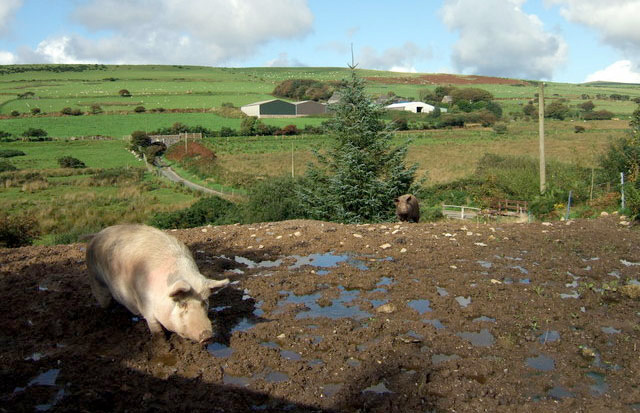
Efforts at enforcing recent animal welfare legislation means that Europe is 'ill-serving' its consumers, according to farming unions.
At a European level, new rules partially banning the use of sow stalls in pig production came into force across Europe at the start of 2013 and a ban on the use of conventional cages in egg laying systems came into force a year previously.
While there is 100 per cent compliance with both pieces of legislation here in the UK, including a full ban on sow stalls, it is understood that as many as 15 countries are under investigation for non-compliance on sow stall rules.
Of those, proceedings against Belgium, Cyprus, Greece, France, Slovenia and Finland stepped up a notch this week – although the cumbersome process means that all have been given more time to comply before referral to the Court of Justice. Decisions on non-compliance in Denmark, Germany, Ireland, Poland, Portugal, Croatia, Hungary, Italy and the Netherlands are outstanding.
On the conventional laying cage ban, two countries - Italy and Greece - have been referred to the European Court over their failure to comply.
While this may suggest activity, little progress is being made at a Brussels level to ensure a system of compliance, and penalties for infraction is delivered.
In April 2013, the Union challenged representatives from the Commission’s Food and Veterinary Office (FVO) and its Animal Welfare Unit on the poor progress on inspections to verify Member States are compliant with the ban on conventional laying cages and the partial ban on sow stalls.
It is apparent that in the intervening months, little if any improvement has been delivered. Indeed, it would appear that one of the few FVO inspections looking at animal welfare undertaken in 2013 was in the UK – where compliance was virtually guaranteed.
Chairman of NFU Scotland’s Pigs Committee Philip Sleigh said: “While Scotland and the UK has been meeting both deadlines for some considerable time, the failure of some other Member States to introduce these pieces of legislation has been well documented.
“It remains a huge disappointment to Scottish producers that the Commission has yet to properly inspect or impose penalties on those Member States who are still producing eggs or pigmeat from systems now deemed illegal. That not only makes a mockery of the whole European legislative system but continues to place our producers at a competitive disadvantage.
“Since making representation to the Commission and the FVO last April, it appears little has changed. The Commission’s attitude towards inspection and enforcement of these important pieces of welfare legislation remains lamentable and fails to ensure that all producers across Europe are abiding by the same set of rules.
“While the Commission may boast to its consumers that it takes the issue of animal welfare very seriously, driving through legislative changes without backing that up through a rigorous and speedy inspection regime and appropriate infraction proceedings for non-compliance makes a mockery of the whole process.
“After years and months, we have a hotch-potch of Member States that are compliant; claim to be compliant but have never been inspected or are non-compliant and have never penalised. It is a bitter irony that the only country listed on the FVO website as having been inspected in 2013 was the UK – where compliance was virtually assured. The same site has no FVO inspections listed for 2014.
“A robust inspection procedure is an important tool to check that EU rules are being fairly, and uniformly applied. Greater Commission resources must be directed with urgency towards the inspection process, backed up by penalty proceedings against those countries where non-compliance with welfare rules continues.
“European consumers deserve better and Europe must review and address the significant failings in the way it goes about introducing and enforcing legislation in this area.”
Last year, a campaign petition gathered more than 100,000 signatures calling on all European Union member states to enforce welfare laws.
The European Union voted for new legislation to modernise the inspection system in pig slaughterhouses. The legislation aimed to improve food safety by increasing the focus on microbiological hazards, which were the main food safety risk from meat, and introduce a more proportionate risk-based approach to hygiene and welfare inspections, known as official controls.
But a Compassion in World Farming EU-wide petition managed to gather a significant amount of support after two weeks.
Dil Peeling, Director of Campaigns for the charity said: "This proves to what extent EU residents care about pig welfare. Surely this should make the 27 EU member states take notice and ensure that animal welfare legislation is enforced."
Seven months after the European Union introduced a ban on keeping sows in stalls (except for the first four weeks of pregnancy) half of European Union countries failed to clamp down on pig farms where sows are illegally confined.
The National Pig Association said retailers and manufacturers should continue 'to be vigilant' and argued consumers expected all imported pork to be traceable to farms complying with the EU's January ban.
